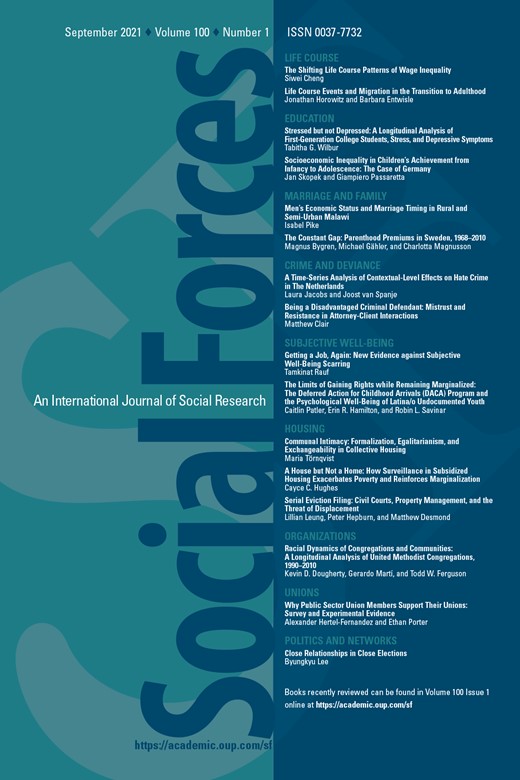-
Views
-
Cite
Cite
Daniel Thomas Cook, Review of The Moral Project of Childhood: Motherhood, Material Life, and Early Children’s Consumer Culture, Social Forces, Volume 100, Issue 1, September 2021, Page e9, https://doi.org/10.1093/sf/soab023
Close - Share Icon Share
Extract
Reviewer: Sinikka Elliott, University of British Columbia, British Columbia, Canada
The Moral Project of Childhood by Daniel Thomas Cook investigates the relationship between consumption, childhood, and motherhood in 19th and early 20th century Christian magazines aimed at privileged North American women. The book argues that the advice to mothers in these religious periodicals aligns well with conceptions of childhood, children’s consumption, and parenting today, suggesting these conceptualizations have earlier origins than previously thought.
Cook initially set out to write a chapter about 19th century white, middle-class, Global North childhood as a precursor to today’s child consumer. His focus reflected conventional wisdom that modern day links between children and the market had not yet fully solidified in this era. As he delved into advice and information about children and childrearing to white, affluent, US mothers in women’s religious periodicals from the 1830s to the 1930s, his thesis changed. In “Christian periodicals aimed at maternal education,” Cook uncovered “a core dynamic that could be found active and formative in ‘modern’ working conceptions of the child and thus of the child consumer” (19). In the advice to mothers within the magazine pages, it is clear that teaching children to have the right relationship to money and material things was a critical aspect of teaching children to be moral beings, according to Cook. Childhood, motherhood, and consumption were inextricably bound together in these periodicals. Children were innately inclined toward material things and it was mothers’ job to guide them to come to value those items that displayed sound judgment and good character.



